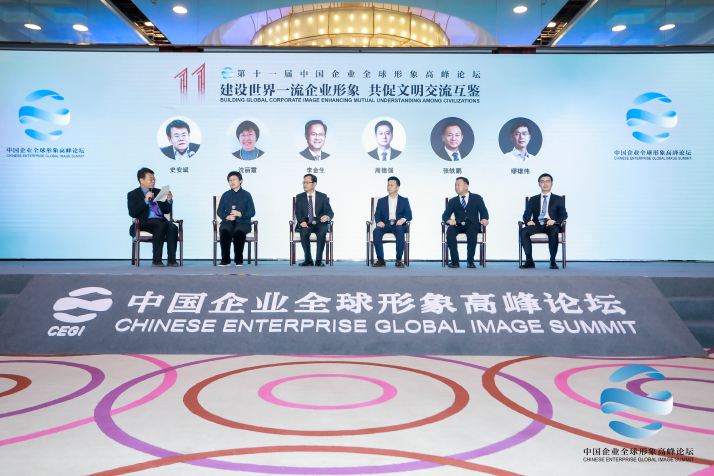
In August 1993, a 20-year-old Pakistani youth named Agil Hussain arrived at a construction site in his worn-out shoes to apply for a job with a Chinese company. The site was in the Thar Desert of the Punjab Plain in Pakistan, and Hussain's family had lived near the desert for years. Although the young man had never attended school, he proved hardworking and eager to learn. In fewer than six months on the job, he quickly picked up the standard Chinese language.
In December 2019, a trip to China to attend the company's annual year-end meeting fulfilled his long-held wish. By then, Hussain had built a comfortable life for himself and his family, including two new brick houses. Starting as a farmer, he had worked his way to success as a driver, safety trainer and interpreter.
Hussain's experience is typical of foreign workers at China Nuclear Industry Huaxing Construction Co. Ltd. His story was selected as one of the Top 10 Excellent Cases 2023 for China's International Corporate Image Building at the 11th Chinese Enterprise Global Image Summit in Beijing on November 27. Themed Building Global Corporate Image, Enhancing Mutual Understanding Among Civilizations, the event provided a platform for Chinese enterprises to enhance their global corporate image and promote cultural exchange and mutual learning.
Wang Gang, Vice Minister of the Publicity Department of the Communist Party of China Central Committee, said, "In international cooperation and trade, the goods we sell will be consumed, the houses we build will depreciate and the roads we build will wear and tear. But the Chinese values and spirit of mutually beneficial and win-win cooperation will remain. Let every economic and trade cooperation be an equal exchange of human civilization."
Du Zhanyuan, President of China International Communications Group (CICG), pointed out that Chinese companies have the ability not only to introduce China's products, technology and standards to the rest of the world, but also to actively promote the country's culture and concepts to people around the world through effective communication.
He said that Chinese culture includes many business ethics and ideas that have been passed down for thousands of years, such as "people-oriented development," "harmony," "mutual benefit," and "diligence and dedication," which can provide valuable guidance and cultural strength in building the image of Chinese companies.
Common values
Shared values are an important factor in shaping corporate brands.
Xiao Yuchao, Director of the Economist Intelligence Corporate Network Beijing at The Economist Intelligence Unit, the sister company to The Economist magazine, argued that the first step in finding common values is to build trust. He cited a survey conducted by the British magazine on how to build corporate trust in the post-pandemic era.
The study, based on a survey of 600 executives from nine major economies in North America, Europe and the Asia-Pacific region, found that transparency, collaboration and integrity are the top three qualities that executives value most in building trust in organizations.
According to a 2023 report on China's top 500 private enterprises released by the All-China Federation of Industry and Commerce, over 70 percent of these enterprises had established systems for business ethics compliance, information disclosure, credit commitment and internal credit rewards and penalties as of late 2022.
At the summit, Tan Zuojun, Vice Chairman of the State-Owned Assets Supervision and Administration Commission of the State Council (SASAC), described the progress of Chinese companies operating overseas as "shared prosperity is doubled prosperity."
Zhong Hongwu, a professor specializing in corporate social responsibility at the Chinese Academy of Social Sciences, said that Chinese companies should try to strengthen effective and equal communication with local communities overseas.
Zhang Sheng, a partner of SynTao-Sustainability Solutions, elaborated on this viewpoint: "The SDGs can be used when communicating with overseas stakeholders about corporate social responsibility. Enterprises should focus on building a multi-channel information disclosure mechanism." The SDGs are the United Nations Sustainable Development Goals, a global call to action to end poverty, protect the planet and ensure peace and prosperity by 2030.

Social responsibility
In his speech, Tan said that over the past decade, centrally administered state-owned enterprises (SOEs), companies under the administration of SASAC, have actively aligned themselves with the 2030 UN Sustainable Development Agenda and the ESG (Environmental, Social and Governance) framework by focusing on local needs, leveraging their strengths, actively implementing livelihood projects, fulfilling social responsibilities and enhancing balanced global development.
"Nearly 90 percent of central SOEs operating overseas are actively involved in protecting local ecosystems and their efforts have earned them a good reputation among local communities," Tan added.
Central SOEs have built a number of greener and modern oil fields like the Halfaya Oilfield (in Iraq) and more than 270 clean energy projects, such as the Karot Hydropower Station (in Pakistan) and the Al Dhafra Solar Photovoltaic Power Plant (in Abu Dhabi), as well as the ecologically and environmentally friendly Mombasa-Nairobi Standard Gauge Railway.
Zeng Yi, chief accountant of the China Three Gorges Corp., summarized his company's overseas social responsibility as "acting as a responsible global corporate citizen."
For example, many species of plants and animals live around the Brasilia Hydropower Plant, owned by the Three Gorges Corp. The company's efforts thus include working with local communities to address climate change, promote energy technology progress, protect biodiversity and enhance cultural exchange.
In addition to rescuing more than 400 wild animals in the surrounding area, the company continues to monitor aquatic plants, the water quality of rivers and reservoirs, and the breeding and release of local fish species.
To evaluate the global image of Chinese enterprises more systematically and accurately, the summit also announced the release of the first-ever Chinese enterprise global image evaluation system, based on nine consecutive years of global surveys on Chinese corporate image and six consecutive years of collecting and analyzing corporate case studies.
This evaluation system is based on three core dimensions: culture, brand and communication, which helps better reflect Chinese enterprises' comprehensive strength in global image building.
(Print Edition Title: The Business of Branding)
Copyedited by Elsbeth van Paridon
Comments to yanwei@cicgamericas.com